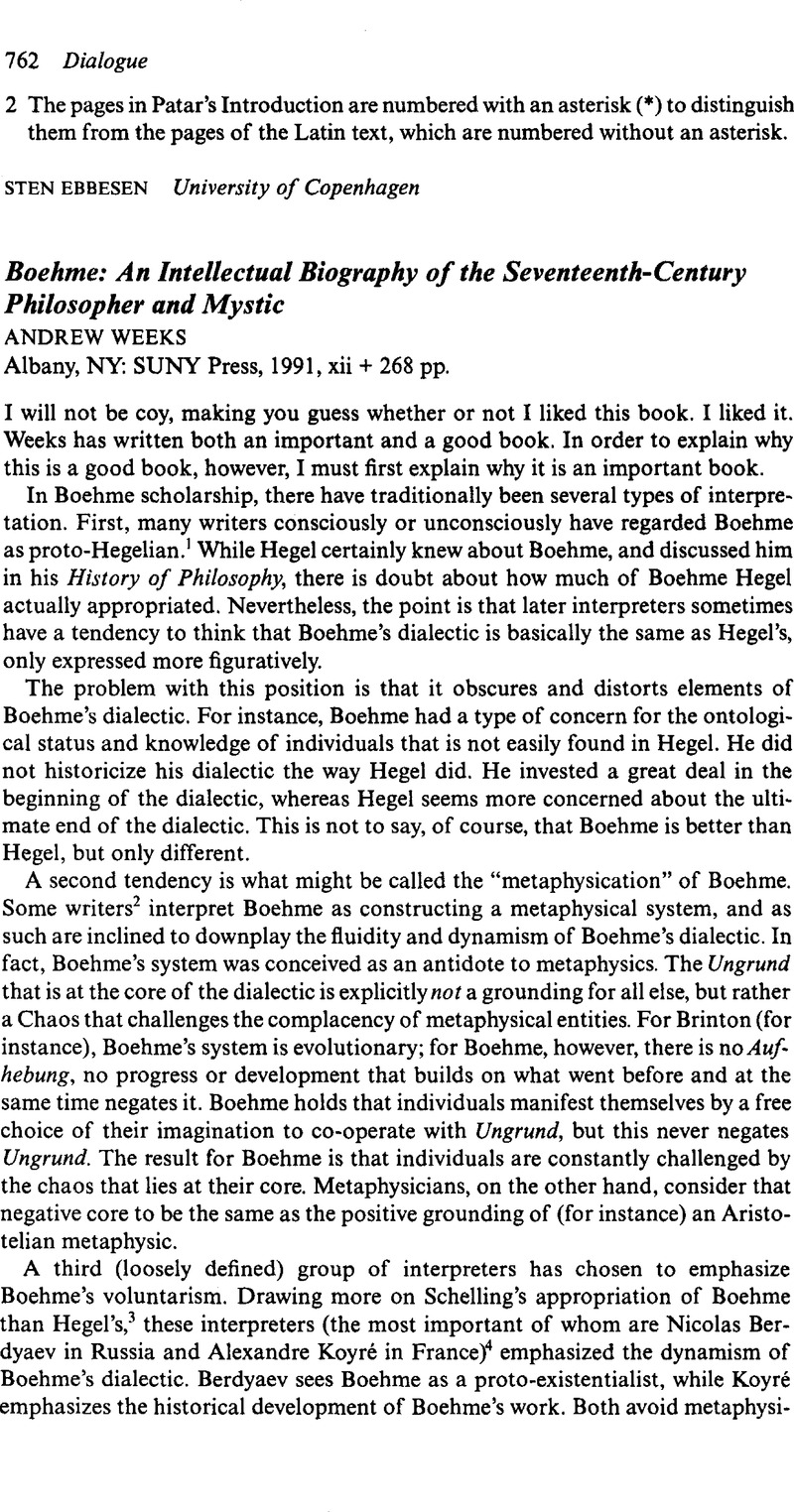No CrossRef data available.
Article contents
Boehme: An Intellectual Biography of the Seventeenth-Century Philosopher and MysticAndrew Weeks Albany, NY: SUNY Press, 1991, xii + 268 pp.
Published online by Cambridge University Press: 13 April 2010
Abstract

- Type
- Book Reviews/Comptes rendus
- Information
- Dialogue: Canadian Philosophical Review / Revue canadienne de philosophie , Volume 33 , Issue 4 , Fall 1994 , pp. 762 - 764
- Copyright
- Copyright © Canadian Philosophical Association 1994
References
Notes
1 A recent example of this is Walsh, David, The Mysticism of Innerworldly Fulfillment (Gainsville, FL: University of Florida Press, 1983)Google Scholar; much earlier is Haldane, Elizabeth, “Jacob Boehme in his Relation to Hegel,” Philosophical Review, 6 (1897): 146–61CrossRefGoogle Scholar.
2 I have in mind here Stoudt, John J., Sunrise to Eternity (Philadelphia: University of Pennsylvania Press, 1957)CrossRefGoogle Scholar, and Brinton, Howard, The Mystic Will (New York: Macmillan, 1930)Google Scholar.
3 The best work in English on the influence of Boehme on Schelling is Brown, Robert, The Later Philosophy of Schelling: The Influence of Boehme on the Works of 1809–1815 (Cranbury, NJ: Associated University Presses, 1977)Google Scholar. As Hegel has been much more influential in Western philosophy than Schelling, the “Hegelization” of Boehme is more prominent (and more problematic) than interpretation derived from Schelling.
4 Berdyaev, Nicolas, “Ungrund and Freedom,” in Six Theosophic Points (Ann Arbor: University of Michigan Press, 1958)Google Scholar, and Koyré, Alexandre, La Philosophie de Jacob Boehme (Paris: J. Vrin, 1929)Google Scholar.
5 An example in this century is Cheney, Sheldon, Men Who Have Walked with God (New York: Alfred Knopf, 1945), pp. 238–84Google Scholar




